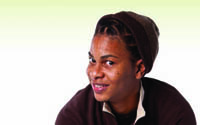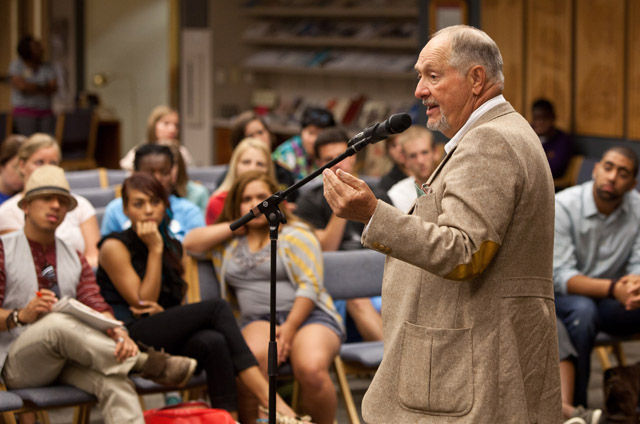Page 10 • (5,627 results in 0.022 seconds)
-
The Department of Sociology and Criminal Justice at Pacific Lutheran University teaches students to understand the social and structural context of our human experience.
are studying families, policing, gender, or deviance, the Department of Sociology and Criminal Justice at Pacific Lutheran University teaches students to understand the social and structural context of our human experience. Our classes highlight how inequalities in American Society impact individual opportunities, such as access to housing, bail, healthcare, or legal representation. Our programs in sociology and criminal justice provide unique opportunities for independent research, faculty
Professor Laura McCloud, ChairXavier Hall, Room 242 12180 Park Ave S Tacoma, WA 98447-0003 -
Social Work Learning Outcomes1. Upon completion of the social work program, students will demonstrate professional and ethical behavior, including ethical decision-making, using reflection & self-regulation, demonstrating professional demeanor.2. By the end of the social work program, students will be able to identify social policy at the local, state, and federal level that impacts well-being, service delivery, and access to social services; assess how social welfare and economic policies
-
Social Work at PLU Congratulations Class of 2024! 2024 SOCW Graduates Congratulations Class of 2023! Congratulations Class of 2022! Congratulations Class of 2022!Congratulations Class of 2022! Congratulations Class of 2021! Congratulations Class of 2020! Congratulations Class of 2020! Lobby Day! Olympia, WA 2020 J-Term on the Hill 2020 Congratulations Class of 2019! Congratulations Class of 2018! J-Term 2018 – Rwanda J-Term On The Hill J-Term 2018 – Tobago Graduating Class of 2017 Phi Alpha
-
The Social Work CurriculumThe B.A. in Social Work at Pacific Lutheran University is designed to prepare individuals for entry-level generalist social work practice. The social work curriculum is based on an integrated, developmental approach to learning and reflects a national consensus on social work education. Each course counted in the Social Work major must be completed with at least a C-.Course Offerings: 190 Introduction to Social Work 175 January Term on the Hilltop 232 Research Methods
-
The Social Work MinorStudents may also choose an 18 credit minor in social work which complements many majors including Psychology, Sociology, Communications, Nursing, Religion, Global Studies and others.
-

November 1, 2010 Why does Angela Pierce care about social justice? “Social justice to me is speaking up for those who are left unheard,” said Angela Pierce, “and helping others find their place.” By Kari Plog ’11 Angela Pierce is the daughter of a Filipino mother and a Caucasian father. She never saw herself as white. At some point, however, Pierce realized other people did see her as white. She noticed when she saw people treating her different than they did her mother. It was then she knew
-

November 1, 2010 Why does Carrie Hylander care about social justice? “College is more than just taking class and completing a major,” said Carrie Hylander. “It’s about learning who we are and our place in the world.” By Kari Plog ’11 When Carrie Hylander wrote about diversity issues in her entrance essay to PLU, her admissions counselor told her that she would be the perfect candidate for the Rieke Scholarship. Given that connection, it makes sense that Hylander works with the program “Word Up
-

November 1, 2010 Why does Chelsea Putnam care about social justice? “My goal is to help students learn the importance of social justice in a smaller community,” Chelsea Putnam said, “because it’s the first step to promoting social justice on a larger scale.” By Kari Plog ’11 When Chelsea Putnam ’12 thinks back to high school and her exposure to diversity issues, one word comes to mind: sheltered. “I had no background or experience,” she recalled. “I just knew I wanted to make a difference.” All
-

November 1, 2010 Why does Maurice Eckstein care about social justice? “I didn’t really know a lot about social justice before I got here,” said Maurice Eckstein. “When I came here I was forced to become aware of it.” By Kari Plog ’11 Maurice Eckstein ’11 is a first-generation college student. The recent PLU graduate, from Trinidad and Tobago, learned about social justice indirectly after coming to PLU. “I didn’t really know a lot about social justice before I got here,” he said. “When I came
-

buses that crossed state lines “We didn’t always understand what we were involved in or it being such a significant movement of history,” Zellner said. “Wherever the worst problem was, was where we’d go.” Advocates of social justice are still needed today, he said. At places like PLU and through places like the Diversity Center, that work can flourish to go out into the world. “I just got out of the home room of the Diversity Center and it sure feels like home,” Zellner told the students at the
Do you have any feedback for us? If so, feel free to use our Feedback Form.


